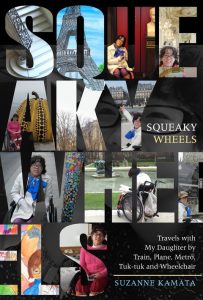Warren Decker and Michael Frazier to lead poetry workshops at Japan Writers Conference
Posted by Tom Baker
Warren Decker and Michael Frazier are two JET poets living in Japan who will each be hosting a workshop at the Oct. 10-11 Japan Writers Conference. This year’s conference is being held online, so you don’t need to be in Japan to attend. For details, see http://japanwritersconference.org. Official descriptions of the workshops appear below.
Warren Decker
Pterodactylic Pentagrameter: Working with Rhyme and Meter
Craft Workshop
Poetry
In this workshop we will focus on poetry that incorporates rhyme and meter. As a participant, please bring 2-10 lines of rhymed and metered poetry for us to discuss. Please also be ready to share your unique techniques for finding the right meter and rhymes for your poetic lines.
Paradoxically, the confines of rhyme and meter can often serve to open unexpected creative doors. One who sets out to write about “fractals” may find “pterodactyls” swooping into their poem. Maintaining a regular pattern of stressed and unstressed beats might lead a poet—after many hours at the keyboard—feeling as though a supernatural rhythmic force is guiding them to choose the perfect words and in the perfect order.
In this workshop, while looking at specific examples of rhyme and meter as exhibited in the participants’ samples, we will collectively attempt to recall the wonderful technical terminology describing syllabic meter (for example: “iambic pentameter,” and “dactylic tetrameter”), but also consider looser and more intuitive accentual poetic rhythms.
Furthermore, we will discuss the incredible variation contained within the seemingly simple concept of “rhyme,” focusing on concrete examples to understand how and why certain rhymes work.
Warren Decker has published poetry, fiction and non-fiction in The Best American Poetry 2018, NOON, The Font, Frogpond, Modern Haiku, Acorn, The New Ohio Review, THINK, Sou’wester, Fifth Wednesday, and several other online and print journals. He also performs his poetry online and in front of live audiences in Osaka.
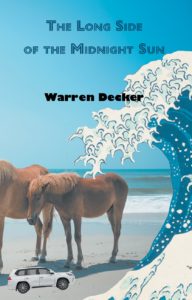
Michael Frazier
I AM MY FAMILY (a persona workshop)
Craft Workshop
Poetry
This is a poetry workshop (open to writers of all genres) who are interested in writing about and through their family. We will use the persona form—writing in the voice of family members—to interrogate ourselves. Some poets we’ll look at include Natalie Diaz, Paul Tran, and Julian Randall.
No one can move forward without looking back at where they’ve come from. This is the principle that guides this workshop. Persona poetry is poetry in the voice of someone, or thing, other than ourselves: shiba inu, wild iris, Sailor Moon, Kanye West, or even your bed. We will use the persona to focus on and interrogate our own families and make meaning out of the relationships that have formed us. In order to embody the voices of our family (biological or chosen) we must practice radical empathy. While a persona is in the voice of someone else, my hope is that in the poems we will write, we will turn inwards and learn something new about ourselves. We will look at writers who wield the persona and voices of their family with urgency like Paul Tran, Yalie Kamara, Hiwot Adilow, K-Ming Chang, Natalie Diaz, and Eduardo C. Corral.
Michael Frazier is a poet in Kanazawa. He graduated from NYU, where he was the 2017 poet commencement speaker & co-champion of CUPSI. He’s performed at venues including Nuyorican Poets Café & Lincoln Center. On staff at The Adroit Journal, his poems appear in COUNTERCLOCK, Construction, Visible Poetry Project, among others.
Charles Kowalski to dissect villains at Japan Writers Conference
Posted by Tom Baker
Many JETs are writers before coming to Japan, while others find that Japan give them something to write about. And many JET writers get involved in the Japan Writers Conference, which this year is being held online, Oct. 10-11.
One of this year’s featured writers is novelist and JET alum Charles Kowalski, who will describe how to give your story a compelling villain.
Here’s the official description of Charles’ presentation:
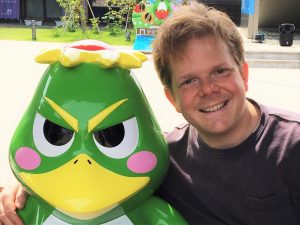
Masterminds, Minions, and Monsters: Creating 3D Villains
(Craft Workshop)
Create compelling villains that readers will love to hate! This workshop will introduce three main villain motivations (the “3 D’s”) and show how these form seven archetypes, plus six effective recruiting tools for henchmen (FLAMES), the top five justifications for villainy, and how to defeat the villain for a satisfying ending.
“A story is only as good as the villain.” – Clive Barker
Bad guys make good stories, and this workshop will focus on creating compelling villains that readers will love to hate.
Here are the questions to be asked and answered in this workshop.
What makes a compelling villain? How can the BOOM technique help create a villain with a believable backstory?
How do the three main motivations of villains intersect to form seven villain archetypes? What are the common personality characteristics of each?
What are the six tools used by master villains to recruit followers? What are the top five justifications for villainy?
What are the five main patterns of villain defeat and their common variations?
Come find out!
Charles Kowalski is the award-winning author of contemporary thrillers MIND VIRUS and THE DEVIL’S SON, and the Japan-themed historical fantasy SIMON GREY AND THE MARCH OF A HUNDRED GHOSTS. When not writing, he teaches at Tokai University.
Panel discussion on MFAs at 2020 Japan Writers Conference
Posted by Tom Baker

Many JETs are writers before coming to Japan, while others find that Japan give them something to write about. If you’re thinking about furthering your writing career by getting an MFA, then you might want to listen to what JET alums Percival Constantine and Warren Decker have to say about.
The two will be part of a panel discussion at the 14th annual Japan Writers Conference, titled “The MFA: The Good, The Bad, and The Expensive.”
Due to the pandemic, this year’s Japan Writers Conference is being held online, meaning there is no travel involved. Here’s the official description of Percy and Warren’s event:
The MFA: The Good, The Bad, and The Expensive
John Gribble, Kristina Butke, Percival Constantine, Alec McAulay, Warren Decker
Panel Discussion
Should I get an MFA or other graduate-level degree in writing?
Aren’t they expensive? Are they difficult? Are they any good? What sort of program should I look at? What kind of benefits should I expect to receive? These questions and others will be addressed in this session.
Masters of Fine Arts in Creative Writing and other advanced degrees with a writing emphasis have become a viable option for those seeking to improve their writing skills and advance themselves professionally. Some programs are full- or part-time on a university campus, some are on-line, some are hybrids, blending elements of both. The panelists, all with advanced writing degrees, will each talk about the programs they attended, their own experiences and answer your questions.
John Gribble is a noted gasbag. He rarely knows what he is talking about, but he states his ignorant opinions with great vigor. He has spent far too much of his life in school and other institutions. He is also a poet, co-organizer of the Japan Writers Conference and the Tokyo Writers Workshop, and earned his MFA at Warren Wilson College in Asheville, North Carolina.
Kristina Elyse Butke is an American writer, editor, and teacher who indulges in cosplay, art, and all things otaku. She has a BA in English Literature from Capital University and an MFA in Writing Popular Fiction from Seton Hill University. A former college English teacher, playwright, and composer, she now writes fantasy and horror. Her work has been published by ExFic, First Class Literary, and Synaeresis Magazine, among others. She’s also worked the convention circuit, presenting panels on writing fanfiction and genre fiction at events such as Ohayocon, Matsuricon, and Colossalcon. In terms of editing, one of her latest projects included subtitle edits for Pied Piper Inc.’s release of the anime Skip Beat!, and she currently edits and contributes to Speculative Chic.
Kristina lives in Kumamoto prefecture in Japan, where she works in multiple high schools as an assistant language teacher. When she isn’t working on all the things, she travels to shrines, hunts for Kumamon, and spends more money than she should at the JUMP shop.
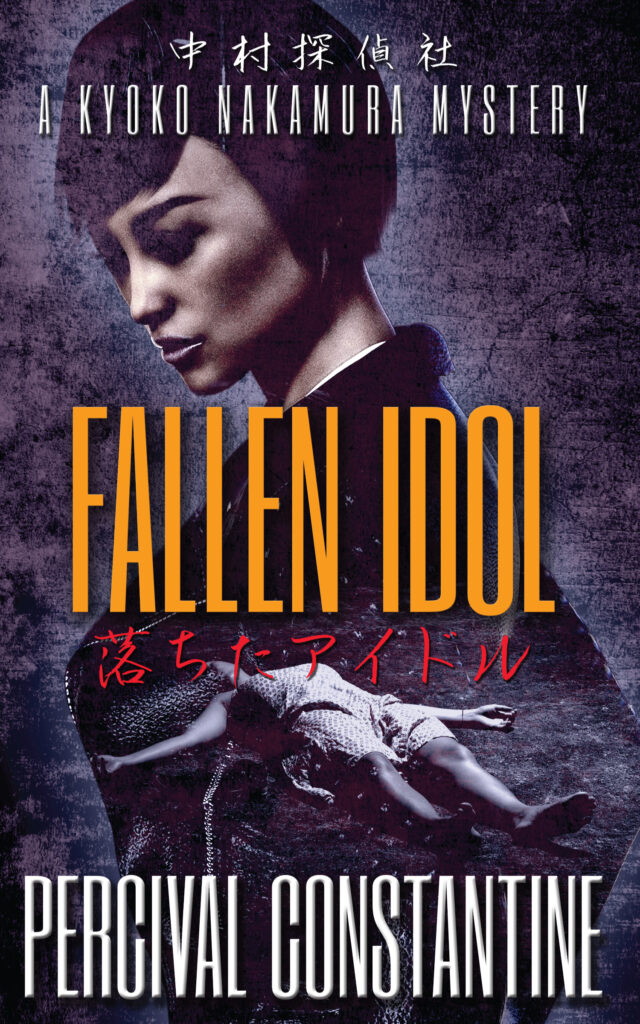
Raised on a consistent diet of superhero comics, action movies, and video games, Percival Constantine wanted to grow up and write the type of fiction he consumed. Now as a prolific author of pulp fiction, he’s written around thirty books across various genres. He’s also the host two podcasts—Japan On Film and Superhero Cinephiles. When he’s not working on projects, he somehow finds time to teach classes in literature, film, and English. Born and raised in Chicago, he’s now based in Kagoshima, Japan.
Alec McAulay is an award-winning writer and director. Originally from Glasgow, Scotland, he has lived in Japan since 1989. He teaches Creative Writing at Yokohama National University. Alec has an MA Screenwriting (Distinction), and a PhD (Screenwriting) from the Faculty of Media & Communication, Bournemouth University. His children’s novel Robot Santa (unpublished) is about a ‘hafu’ Scottish-Japanese girl who builds a robot Santa to save Christmas.
Warren Decker is a teacher and writer based in Izumi, Japan. He has published poetry, fiction, and nonfiction in The Best American Poetry 2018, The New Ohio Review, Modern Haiku, Sou’wester, and other journals. His first book of poetry The Long Side of the Midnight Sun is available from Isobar Press. He has an MFA in creative writing from the online program at the University of Texas, El Paso.
WIT Life #343: Dispatches from Japan (courtesy of NYT)
Interpreter/Translator/Writer Stacy Smith (Kumamoto-ken CIR, 2000-03) presents WIT Life, a periodic series about aspects of Japanese culture such as film, food and language. Stacy starts her day by watching Fujisankei’s newscast in Japanese, and here she offers some interesting tidbits and trends along with her own observations..
We entered Phase 2 this week and it looks like New York continues to move in the right direction, though the same cannot be said for other parts of the country. Tokyo has also seen a slight rise in cases, but the alert was recently lifted so perhaps that has something to do with it.
I’ve been watching the Japanese news and reading the New York Times to keep tabs on how the virus is affecting Japan, and I’d like to share some articles I found most informative and/or interesting.
Last month there was a NYT article about how the pandemic has affected Japanese men and their domestic duties. This month’s reporting focused on the deeply ingrained culture of mask wearing in Japan, as well as how it has been able to maintain a low jobless rate despite the crisis. Happy reading!
WIT Life #341: Hanami at home
Interpreter/Translator/Writer Stacy Smith (Kumamoto-ken CIR, 2000-03) presents WIT Life, a periodic series about aspects of Japanese culture such as film, food and language. Stacy starts her day by watching Fujisankei’s newscast in Japanese, and here she offers some interesting tidbits and trends along with her own observations.
Hope everyone is holding up ok as we enter our second month of sheltering at home. Some days are better than others, but one thing I’m really missing is soaking up spring. This would typically be the season when I’d be attending all of the 桜祭り (sakura matsuri or cherry blossom festivals) in various parts of Queens, but of course that can’t happen this year.
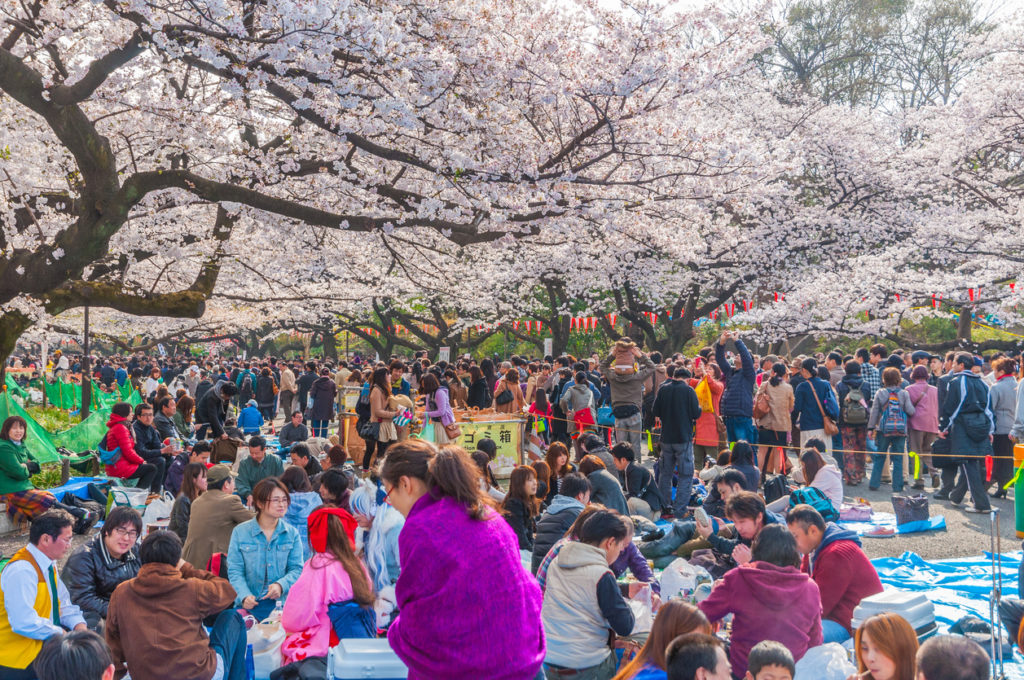
Thankfully the Sato Sakura Gallery has a virtual fix for people who are craving the cherry blossoms. Check out this related article, which discusses 花見 (hanami or flower viewing) culture, as well as the museum’s amazing collection of sakura screens and paintings. For those who want a literal taste of sakura, try the cherry blossom shake at Shake Shack or pick up some sakura mochi at your local Japanese supermarket.
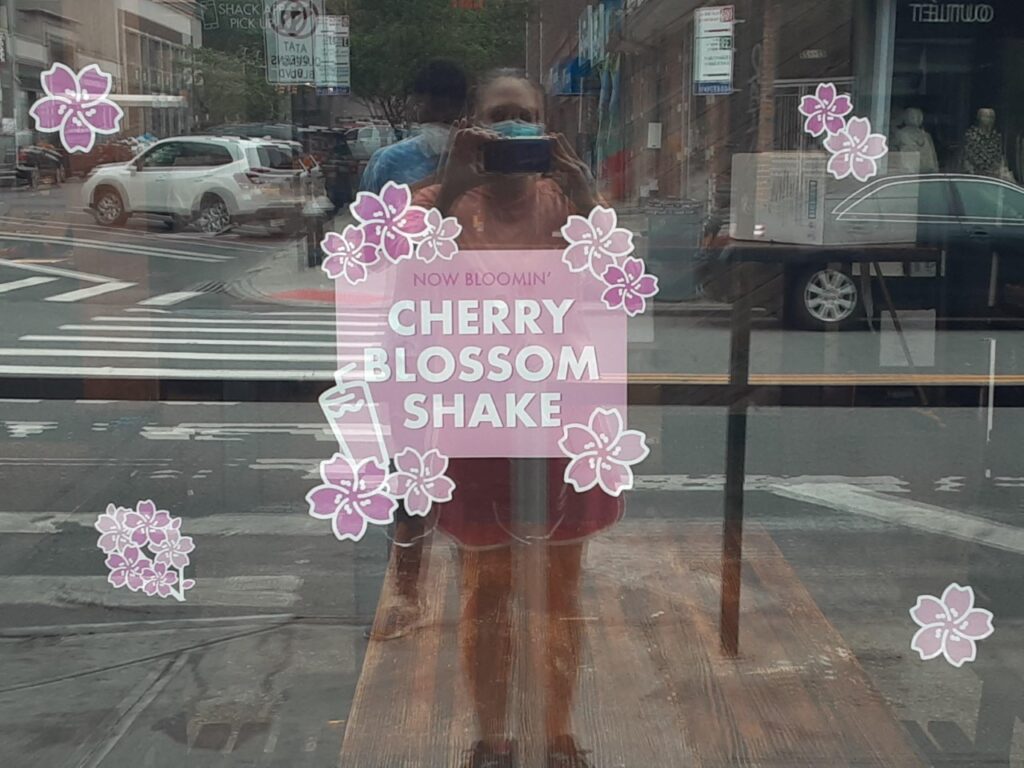
Hope this tides you over until next year, when we can hopefully enjoy the blossoms by sitting under them with food, drink and friends!
JET alum Charles Kowalski to cohost Japan Writers Conference
Posted by Tom Baker
The annual Japan Writers Conference is seeking writers, editors and translators to give presentations at this year’s event, to be held in October in Kanagawa Prefecture. Through the years, many JETs and JET alumni writers, including freelancers, have spoken at or attended this event. This year, former JET Charles Kowalski will be cohosting the conference at his university.
The organizers are aware that the coronavirus has added uncertainty to everyone’s plans this year, but they intend to go ahead with the event if it is safe to do so in the autumn. However, they are also contemplating online options, so it might become possible to attend remotely. Here’s the official announcement:
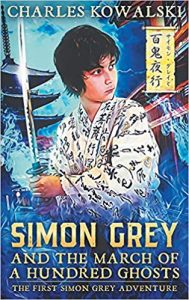 Each year, English-language writers from many fields gather at the Japan Writers Conference to share ideas and experiences on the art, craft and business of writing. In 2020, the 14th annual Japan Writer’s conference will be held on Oct. 10-11 at the Shonan campus of Tokai University in Hiratsuka, Kanagawa Prefecture. Award-winning novelist and JET alum Charles Kowalski, a popular speaker at past conferences, will cohost this year’s event with food and travel writer Joan Bailey.
Each year, English-language writers from many fields gather at the Japan Writers Conference to share ideas and experiences on the art, craft and business of writing. In 2020, the 14th annual Japan Writer’s conference will be held on Oct. 10-11 at the Shonan campus of Tokai University in Hiratsuka, Kanagawa Prefecture. Award-winning novelist and JET alum Charles Kowalski, a popular speaker at past conferences, will cohost this year’s event with food and travel writer Joan Bailey.
“The Japan Writers Conference is something special,” said poet John Gribble, a co-organizer of the event. “It is open to all, beginner to pro. It is also an annual collection of rigorous, authoritative lectures, workshops, and discussion groups. Anyone with a concern for the written and published word would benefit from coming.”
The conference is now accepting proposals for presentations. All published writers, as well as translators, editors, agents and publishers, are welcome to submit proposals.
Last year’s JWC presenters included astrophysicst Elizabeth Tasker on writing about science, novelist Evan Fallenberg on writing about sex, and screenwriter Steven Wolfson on structuring plots. Authors Holly Thompson and Mariko Nagai held a workshop on revising young adult fiction.
“This has been a year of isolation for everyone,” Kowalski noted. “But for English-language writers in Japan, that’s familiar territory, and it’s often the most fertile soil for the seeds of inspiration to take root. I hope that, come autumn, we’ll all be able to poke our heads above ground again and share a rich harvest of ideas.”
Writers and others interested in giving presentations, or simply attending the 2020 conference, can find details, including proposal guidelines and a submission form, at http://www.japanwritersconference.org. The deadline for proposals is June 1.
Run entirely by volunteers, the Japan Writers Conference is a free event open to all. Inquiries should be sent to japanwritersconference@gmail.com
Job: Tourism-related writer (Japan) or copyeditor (anywhere)
Posted by Tom Baker
This job listing come from Brendan Craine, a managing editor at Export Japan, a small translation and content production company in Nihonbashi, Tokyo. The job involves the production of expository text for Japan’s various tourist sites under the auspices of the Japan Tourism Agency. Applicants must complete certain trials by April 10. They can receive the trial material by emailing their credentials to writing@export-japan.co.jp with the subject line: “JTA Signage Revision Project 2020 – Inquiry about Freelance Work [first and last name].”
The following is the description provided by Craine, lightly edited:
**********************************
Information about the project (in Japanese) can be found here.
This project has been ongoing since May 2018. Last year alone, we produced over 500 pieces of text for 24 different localities. These texts ranged in topic and medium, from museum panels about national parks to online text about castle ruins, and had our writers traveling to well-known sites in Kyoto and Nikko as well as seldom-traveled islands like Oki and Ogasawara.
The project will continue in this coming year, and we are looking for writers and copyeditors to assist in the text production process.
Position: Writer or Copyeditor
Term: Ongoing between May 2020 and January 2021
Duties: (see trials for in-depth explanation)
Writer: Preliminary research on assigned location, accompanied coverage of local site, production of text and revision in response to editor feedback
Copyeditor: Preliminary research on assigned location, editing of drafted text
Compensation:
Writer: ¥18,000 per 250-word piece of text
Copyeditor: ¥5,000 per 250-word piece of text
(Participants are assigned 15 texts on average)
[Candidates with Japanese language proficiency equivalent to JLPT N2 or better are highly preferred.]
Because writing signage text is markedly different than writing for journalistic or academic publications, the JTA has mandated that writers and copyeditors must be vetted with trials. In order to be considered for either position, you will need to submit its associated trial. (Applications for both positions are also accepted, provided both trials are submitted.) Trials will be accepted until April the 10th.
Although writers residing in Japan are desirable, transportation to/from Japan can be provided for a strong candidate living overseas. Any lodging and transportation costs associated with coverage will be provided. The copyediting work can be performed entirely from overseas.
If you have any clarifying questions/other inquiries, please feel free to respond and ask.
This position is open to any qualified candidate, and referrals are welcome.
In that case, please have your colleagues email their credentials to writing@export-japan.co.jp with the subject line:
“JTA Signage Revision Project 2020 – Inquiry about Freelance Work [first and last name]”
Interpreter/Translator/Writer Stacy Smith (Kumamoto-ken CIR, 2000-03) presents WIT Life, a periodic series about aspects of Japanese culture such as film, food and language. Stacy starts her day by watching Fujisankei’s newscast in Japanese, and here she offers some interesting tidbits and trends along with her own observations.
Recently I had the chance to check out the newest exhibition at the Sato Sakura Gallery, Curious Beasts. As the name indicates, this collection of paintings is of animal portraits ranging from cats and tigers to dogs and birds. The works are from the artists Fumika Koda and Yuji Musashihara, and being a cat lover I was partial to Koda’s paintings as they mostly feature felines. In particular, I liked her painting Beautiful Spring Day (春うらら, haru urara), which shows a cat caught under falling cherry blossoms (花吹雪, hanafubuki).
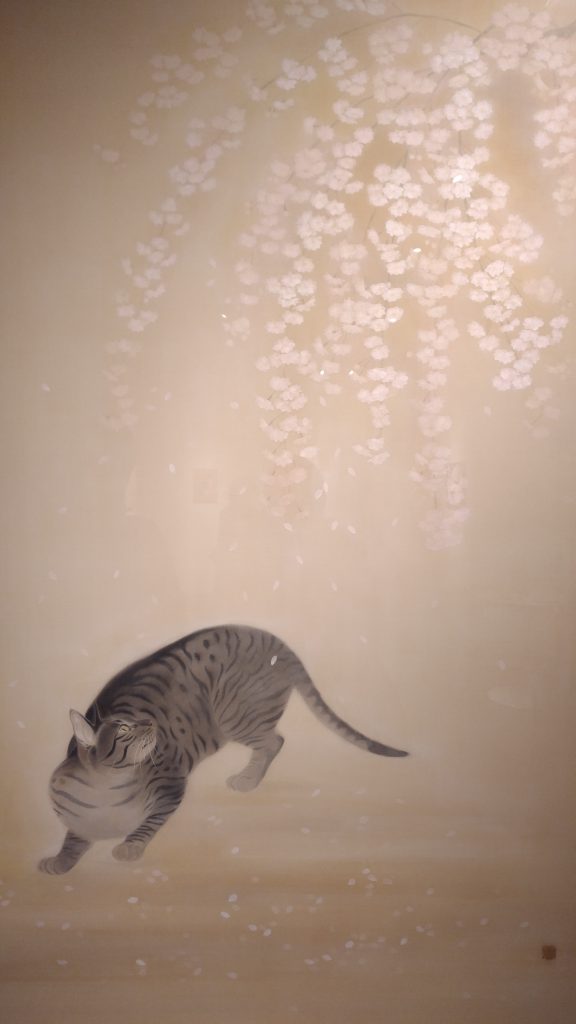
WIT Life #337: Japanese Home Cooking
Interpreter/Translator/Writer Stacy Smith (Kumamoto-ken CIR, 2000-03) presents WIT Life, a periodic series about aspects of Japanese culture such as film, food and language. Stacy starts her day by watching Fujisankei’s newscast in Japanese, and here she offers some interesting tidbits and trends along with her own observations.
It’s been a long time since I’ve written here, and I can’t believe the holiday season is already upon us! If you are like me and are still in the midst of Christmas gift shopping, what better present is there than books? In the last week I’ve visited various bookstores in the city, and was lucky enough to be introduced to the fantastic new cookbook Japanese Home Cooking (Simple Meals, Authentic Flavors) from the cooking teacher, noodle maker, grain activist and author Sonoko Sakai.
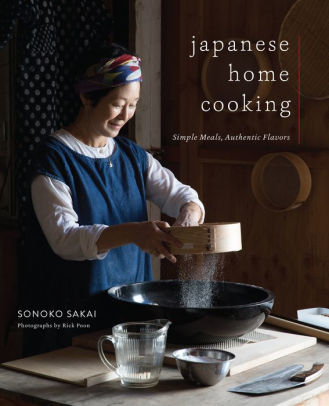
California-based, Queens-born Sakai shares personal stories while showcasing traditional Japanese dishes in this beautifully photographed book. She offers readers advice on how to stock their pantries with the necessary ingredients for creating any Japanese meal, as she views this as the most important aspect of Japanese cuisine (she often takes students on tours of Japanese grocery stores as they can be hard to navigate if you are not familiar with what is being sold). I like how she opens the book by describing freshness, beauty, seasonality, simplicity and economy as the five keys to Japanese cooking. As an introduction she also breaks down the five elements of cooking and eating (i.e. five colors, five senses, five flavors), making these essential aspects easy to remember.
Novelist Charles Kowalski to lead Japan Writers Conference workshop
Posted by Tom Baker
 Novelist and former Aomori Prefecture JET Charles Kowalski, the author of the thrillers “Mind Virus” and “The Devil’s Son,” as well as the new middle-grade novel, “Simon Grey and the March of a Hundred Ghosts,” will present a workshop on giving names to fictional characters at this year’s Japan Writers Conference, happening in Tokyo on Oct. 12-13. Here’s a description of his presentation:
Novelist and former Aomori Prefecture JET Charles Kowalski, the author of the thrillers “Mind Virus” and “The Devil’s Son,” as well as the new middle-grade novel, “Simon Grey and the March of a Hundred Ghosts,” will present a workshop on giving names to fictional characters at this year’s Japan Writers Conference, happening in Tokyo on Oct. 12-13. Here’s a description of his presentation:
What’s In A Name? Tips and traps in character naming
Craft workshop
Remember the journey into Mordor by the heroic Bingo Baggins? (Of course not, and aren’t you glad?) The naming of characters is a difficult matter, but we will discuss the three main considerations (sound, meaning, and associations) and their applications to genres ranging from contemporary fiction to SF and fantasy, along with pitfalls to avoid.
Charles Kowalski’s debut thriller, MIND VIRUS, won the Rocky Mountain Fiction Writers’ Colorado Gold Award, and was a finalist for the Killer Nashville Claymore Award and the Adventure Writers’ Grandmaster Award. His first middle-grade novel, SIMON GREY AND THE MARCH OF A HUNDRED GHOSTS, was just released by Excalibur Books.
For more information, visit charleskowalski.com or japanwritersconference.org.
Michael Frazier to lead Japan Writers Conference poetry workshop
Posted by Tom Baker
Kanazawa JET Michael Frazier is set to lead a poetry workshop at this year’s Japan Writers Conference (Oct. 12-13 in Tokyo). Here’s the official description:
Haibun, Tanka, Pecha Kucha—Contemporary English-Language Poets & Japanese Forms
Craft Workshop
 This workshop focuses on the influences of unsung Japanese poetic forms on contemporary English language poetry and spoken word. We’ll watch and read haibun, pecha kucha, and tanka. We’ll discuss the forms and write our own poems using one of the forms. This generative workshop is open to writers of all genres.
This workshop focuses on the influences of unsung Japanese poetic forms on contemporary English language poetry and spoken word. We’ll watch and read haibun, pecha kucha, and tanka. We’ll discuss the forms and write our own poems using one of the forms. This generative workshop is open to writers of all genres.
In particular, we will look at less common forms (haibun & tanka) and newly-invented forms (Origami & Pecha Kucha). The Pecha Kucha, based on a Japanese business presentation style, was pioneered as a poetic form by American poet Terrance Hayes. It is this type of ingenuity this workshop is to focused on. In this workshop we will look at poems by writers of color who practice “re-approaching” by using Japanese forms like Aziza Barnes, Sonia Sanchez, Aimee Nezhukumatathil, Amiri Baraka, and Terrance Hayes. We will discuss the content of their poems, why they used the form, and how they reinvented. Participants will be asked to choose a form and write something new in the workshop.
Michael Frazier graduated from NYU, where he was the 2017 Poet Commencement Speaker & College Union Poetry Slam Invitational Co-Champion. He has performed at venues such as Lincoln Center for the Performing Arts, Nuyorican Poets Cafe, & Gallatin Arts Festival. His poems appear in The Visual Poetry Project, Day One, The Speakeasy Project, & others. Catch him reading poems for The Adroit Journal & teaching SHS in Kanazawa.
3 current JETs to speak at Japan Writers Conference
Posted by Tom Baker
A trio of current JETs – Micah Tasaka, Yoshika Wason, and Michael Frazier – will be among nearly 50 published writers making presentations at this year’s Japan Writers Conference (Oct. 12-13 in Tokyo). Here’s the official description of what they’ll do:
Beyond Borders: Creating Connective Writing Communities
Reading, Panel, and Q&A
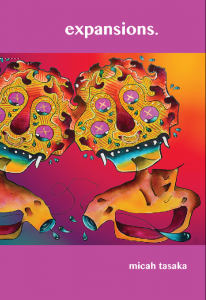 In this presentation, we will discuss how to build international writing communities, utilize internet resources, and create publishing opportunities for one another. Ultimately, we want to explore the connective power of writing communities in our home countries and abroad while focusing on creating mutual support and legitimacy for other writers.
In this presentation, we will discuss how to build international writing communities, utilize internet resources, and create publishing opportunities for one another. Ultimately, we want to explore the connective power of writing communities in our home countries and abroad while focusing on creating mutual support and legitimacy for other writers.
While publishing is often thought of as written work being “accepted” by a publisher, we would like to question what publishing means and focus on how to build international communities that support and create opportunities for one another. Through this discussion, we seek to dismantle the scarcity complex that often surrounds publishing and find new ways to get our work in front of audiences by means of collaboration and community support while utilizing internet resources to extend our reach to a global scale. With backgrounds in both written and performance art, we would like to redefine publishing to be more inclusive and community based. By establishing communities that are willing to hear and experience one another’s work, can we create space for more writers to be legitimized? In doing so, how can we ensure that those who exist in the margins are also heard from and not just established writers?
Micah Tasaka is a queer mixed Japanese poet and spoken word artist from the Inland Empire, California, residing in Fukui prefecture, Japan. They received their undergraduate degree in creative writing from the University of California, Riverside. Micah is a community organizer and has taught workshops on publishing manuscripts, poetry performance skills, and using poetry as healing for trauma survivors. Their first full length manuscript, Expansions, was released on Jamii Publishing in 2017, and their work has appeared in In the Words of Women, Name and None, and Nikkei Uncovered among others.
www.micahtasaka.com
 Yoshika Wason is a teacher and writer. She earned her BA from Boston College, where she was Editor in Chief of ASIAM, an Asian Pacific Islander American literary magazine. She is continuing her work in the API community through her current role as Co President of the Asian Pacific Islander Association for Japan Exchange and Teaching (API AJET.) Yoshika is working on her first full length poetry manuscript currently titled Second Chances for Fallen Blessed Children and also has a self published micro chapbook called Extra Bold. She currently writes a monthly education column
Yoshika Wason is a teacher and writer. She earned her BA from Boston College, where she was Editor in Chief of ASIAM, an Asian Pacific Islander American literary magazine. She is continuing her work in the API community through her current role as Co President of the Asian Pacific Islander Association for Japan Exchange and Teaching (API AJET.) Yoshika is working on her first full length poetry manuscript currently titled Second Chances for Fallen Blessed Children and also has a self published micro chapbook called Extra Bold. She currently writes a monthly education column
called Today’s Lesson and has been published in Ghost City Review, Rice Paper Magazine, The Paper Napkin, and elsewhere. Learn more at
www.yoshikawason.com
Michael Frazier graduated from NYU, where he was the 2017 Poet Commencement Speaker & College Union Poetry Slam Invitational Co-Champion. He has performed at venues such as Lincoln Center for the Performing Arts, Nuyorican Poets Cafe, & Gallatin Arts Festival. His poems appear in The Visual Poetry Project, Day One, The Speakeasy Project, & others. Catch him reading poems for The Adroit Journal & teaching SHS in Kanazawa.
For more information about this year’s Japan Writers Conference, visit www.japanwritersconference.org.
Suzanne Kamata to speak at Japan Writers Conference
Posted by Tom Baker.
JET alum Suzanne Kamata will be among nearly 50 published writers making presentations at this year’s Japan Writers Conference (Oct. 12-13 in Tokyo). Here’s the official description of her talk:
“Wheelchair User or Wheelchair-bound?: Representations of Persons with Disabilities in Children’s Books”
In this session, I will discuss positive and problematic representations of persons with using examples from recently published Japanese textbooks, and literature featuring children in Japan and other countries, including my own work, with a view to developing better awareness. With the approach of the 2020 Tokyo Paralympics, people with disabilities in Japan have been given more attention than perhaps ever before. English textbooks for Japanese children now frequently include stories about or representations of people with disabilities. Worldwide, initiatives such as #weneeddiversebooks and the call for #ownvoices have led to an increase of children’s and young adult books featuring characters with disabilities. That said, some of these representations, and the way that they are discussed remain problematic. When do stories about disability become “inspiration porn”? What kind of language should we use when discussing disability? Who has the right to tell these stories?
Suzanne Kamata is the award-winning author or editor of twelve published books including “Love You to Pieces: Creative Writers on Raising a Child with Special Needs” (Beacon Press, 2008), “Gadget Girl: The Art of Being Invisible” (GemmaMedia, 2013), “A Girls’ Guide to the Islands” (Gemma Open Door, 2017), “Squeaky Wheels: Travels with My Daughter by Train, Plane, Metro, Tuk-tuk and Wheelchair” (Wyatt-Mackenzie Publishing, 2019), and “Indigo Girl” (GemmaMedia, 2019). She is an Associate Professor at Naruto University of Education.
For more details, visit http://www.japanwritersconference.org/
Jennifer Hammer to speak at Japan Writers Conference
Posted by Tom Baker.
 JET alum Jennifer Hammer will be among nearly 50 published writers making presentations at this year’s Japan Writers Conference (Oct. 12-13 in Tokyo). Here’s the official description of her talk:
JET alum Jennifer Hammer will be among nearly 50 published writers making presentations at this year’s Japan Writers Conference (Oct. 12-13 in Tokyo). Here’s the official description of her talk:
“NaNoWriMo: What Are These Syllables and Why Do Writers Care?”
This lecture will focus on what exactly NaNoWriMo is, the pros and cons of writing 50,000 words in thirty days, and how writers can benefit from this online (and real life) community during the official November event, in April and July for “Camp NaNo,” and with writers of varying levels from around the world. Why should a writer care about these four syllables? Because NaNo is a great resource for writers, can be adapted to schools (and/or clubs), and is a way to make friends for life (as well as connect with the 5AM writing club, whichever time zone you’re in).
Jennifer Hammer is the Tokyo Municipal Leader (ML) for NaNoWriMo and a four-year NaNo winner. She writes whatever pretty idea catches her attention, all the way from super hero romance (White Knight) to creepy-crawly horror (JA Hammer) to fantasy video games (Coffee Quills).
For more details, visit http://www.japanwritersconference.org/
Todd Jay Leonard to speak at Japan Writers Conference
Posted by Tom Baker.
JET alum Todd Jay Leonard will be among nearly 50 published writers making presentations at this year’s Japan Writers Conference (Oct. 12-13 in Tokyo). Here’s the official description of his talk:
“Publishing in the EFL Market in Japan: Four Perspectives on How to Make your Proposal Count”
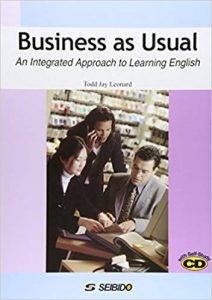 Short lecture with Q & A
Short lecture with Q & A
This presentation will outline the current publishing market in Japan for EFL/ESL textbooks by reviewing the various points of views of the publishing industry. The presenter has published extensively within the ESL/EFL field in Japan and will offer helpful advice to budding authors who wish to pursue projects geared to Japan’s domestic market. What are publishers looking for in the current market? What appeals to editors who ultimately decide? What are the salespeople on the front lines hearing from their market? What must an author do in order to get his/her book published? This presentation focuses on these very questions.
Todd Jay Leonard has been actively involved in book publishing for thirty years and has published twenty books. He lives, writes, and teaches on the southern island of Kyushu, where he is a university professor at University of Teacher Education Fukuoka. He has published extensively in academic journals, magazines, and newspapers on cross-cultural, historical, and Teaching English as a Foreign Language (TEFL) themes.
For more details, visit http://www.japanwritersconference.org/

